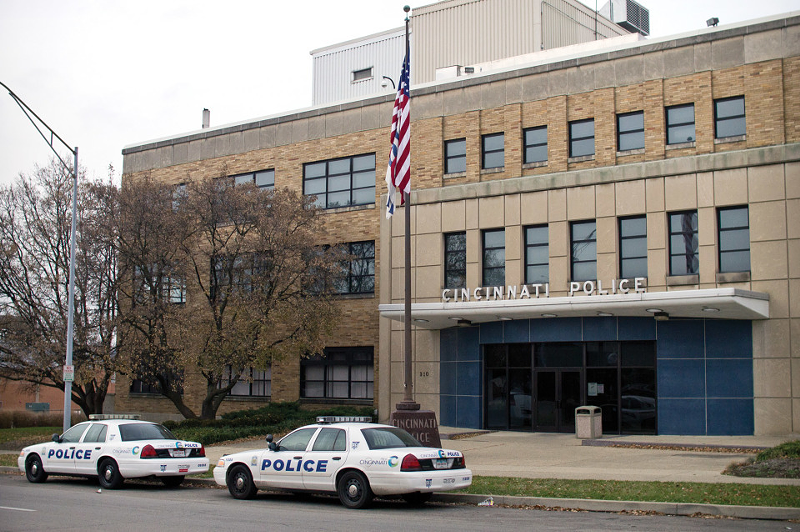Good morning all. Here’s a brief pre-turkey day rundown of the news you’ll soon be arguing about with you relatives.
A little pre-holiday land shopping for a local soccer team: FC Cincinnati has signed an option to buy the site in Oakley it’s been eyeing for its proposed $200 million stadium. That’s another step on the not-yet-cleared path the team is trying to mow to get to a new stadium and a bid for a Major League Soccer Franchise. Read all the background here ahead of Cincinnati City Council’s Monday vote on a plan that would plow $52 million in public money into infrastructure supporting that stadium.
• The city’s winter shelter in Queensgate, which provides respite for 200 homeless individuals from December through February is facing a funding shortfall this year. Read our story this morning for more on what local nonprofits are doing — and their ask to Cincinnati residents — to try and close the gap.
• The Cincinnati Police Department has drones. That sounds creepy and vaguely dystopian, but reportedly the department is just using the two unmanned flying cameras it purchased for about $5,000 apiece recently to survey car crashes. That used to take hours, CPD officials say, but now can be wrapped up in about 15 minutes.
• It’s not exactly a secret that Greater Cincinnati has a looming problem with funding needed for large public works projects, and that help may not be coming any time soon from the federal government. There’s the Brent Spence Bridge, that little span that carries I-71 and I-75 across the Ohio River and needs a multi-billion dollar replacement. Then there’s the crumbling Western Hills Viaduct, which was built more than 80 years ago and also needs replaced. And, oh yeah, the city’s parks need multiple millions of dollars in deferred maintenance and upgrades. The list goes on. As we all collectively freak out about that, let’s take an interesting trip back in time to an era when government built things — things that still exist in Cincinnati, even! There are tons of weird, bad things about the New Deal, but it left a huge, undeniable mark on Cincinnati. Check out our feature on its local impact here — if nothing else, for the stunning historic photographs.
• A federal judge has ordered the city of Cleveland to work harder to clear its backlog of citizen complaints against police officers. The city has hundreds of complaints dating back as far as 2014 that it hasn’t even touched yet. U. S. District Judge Solomon Oliver has ordered that parties in a 2015 consent decree overseen by the U.S. Department of Justice meet to discuss ways to clear that backlog. The order comes as political controversy continues around Cincinnati’s Citizen’s Complaint Authority, which is charged with investigating similar complaints here. Police union president Dan Hils recently asked Hamilton County Courts to delay officers accused of excessive force and racial profiling from testifying before the CCA, angering City Manager Harry Black. The city manager threatened to involve the DOJ in a heated phone call with Hils about the issue last month.
• A new policy by the Federal Communications Commission could change the way the internet works and how you pay for it. The FCC under the Trump administration is poised to overturn an Obama-era rule that forced the federal government to treat the internet like a public utility, meaning regulations that forbade companies from charging different amounts and providing varying accessibility for a different sites online. That’s the quick and dirty explanation for the policy shift away from what's called Net Neutrality. Here’s a more detailed explanation of the decision, which has led to wide outcry from many in the U.S. Here's a column by Jeff Blevins, head of the Journalism Department at the University of Cincinnati, we published this summer on serious concerns about potential repeal.


